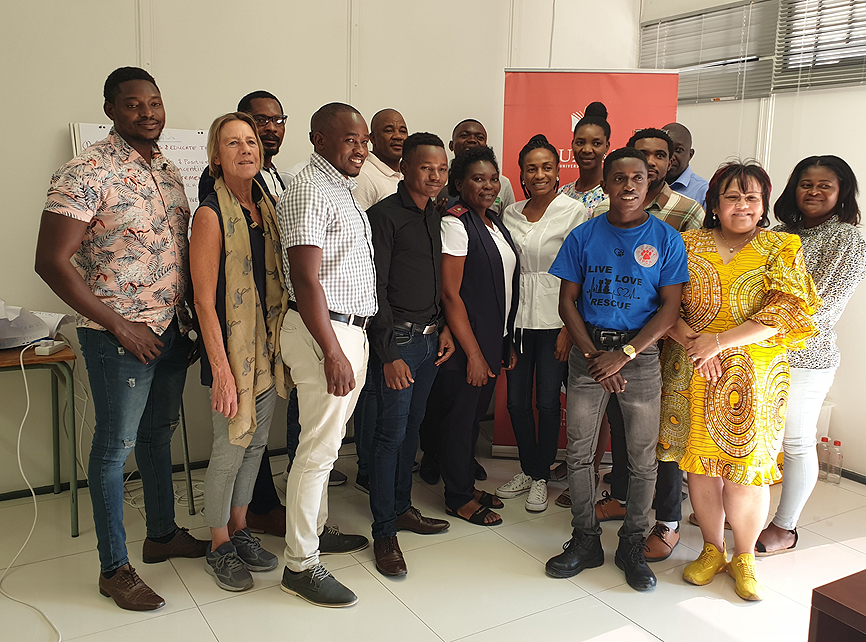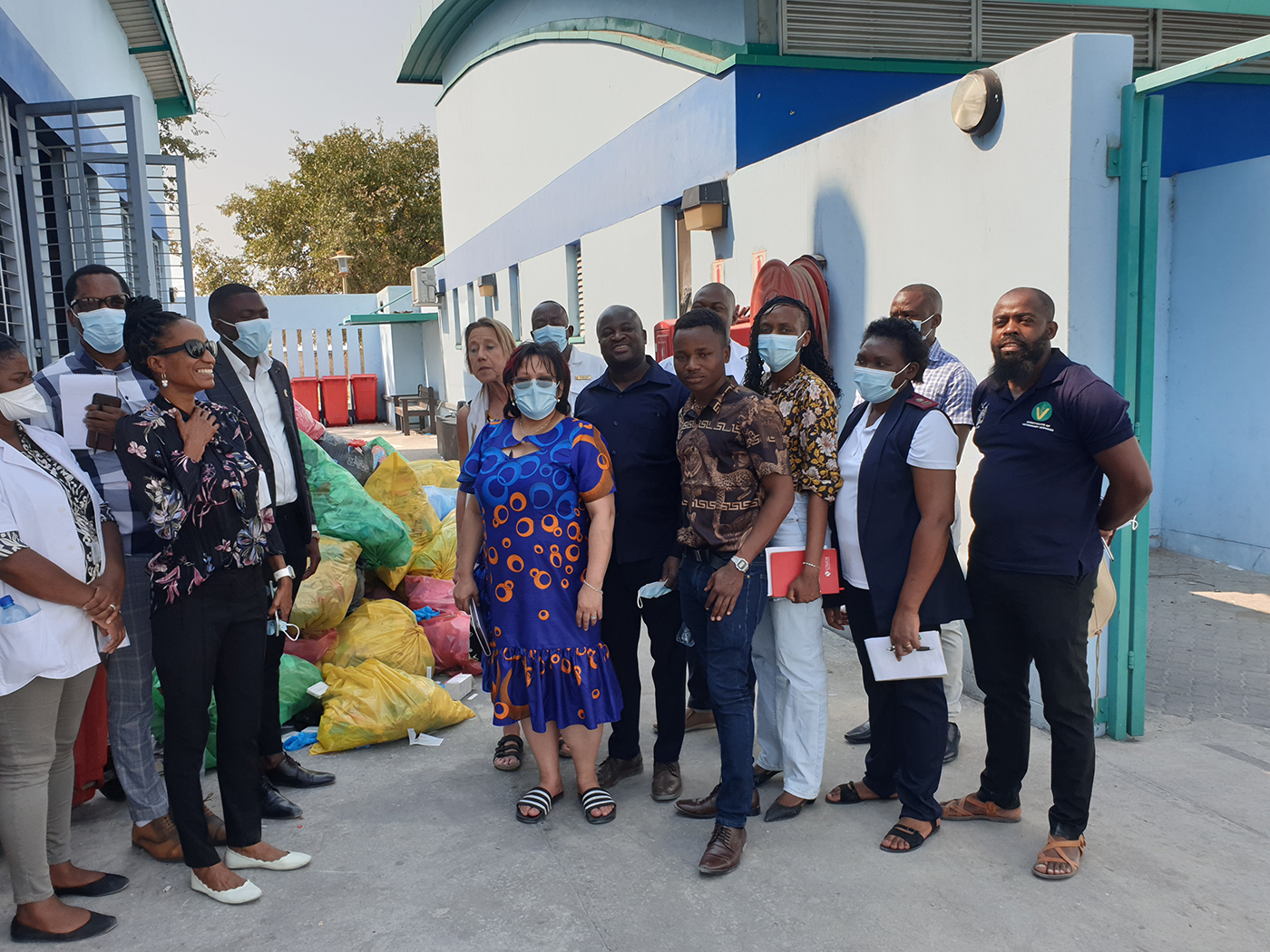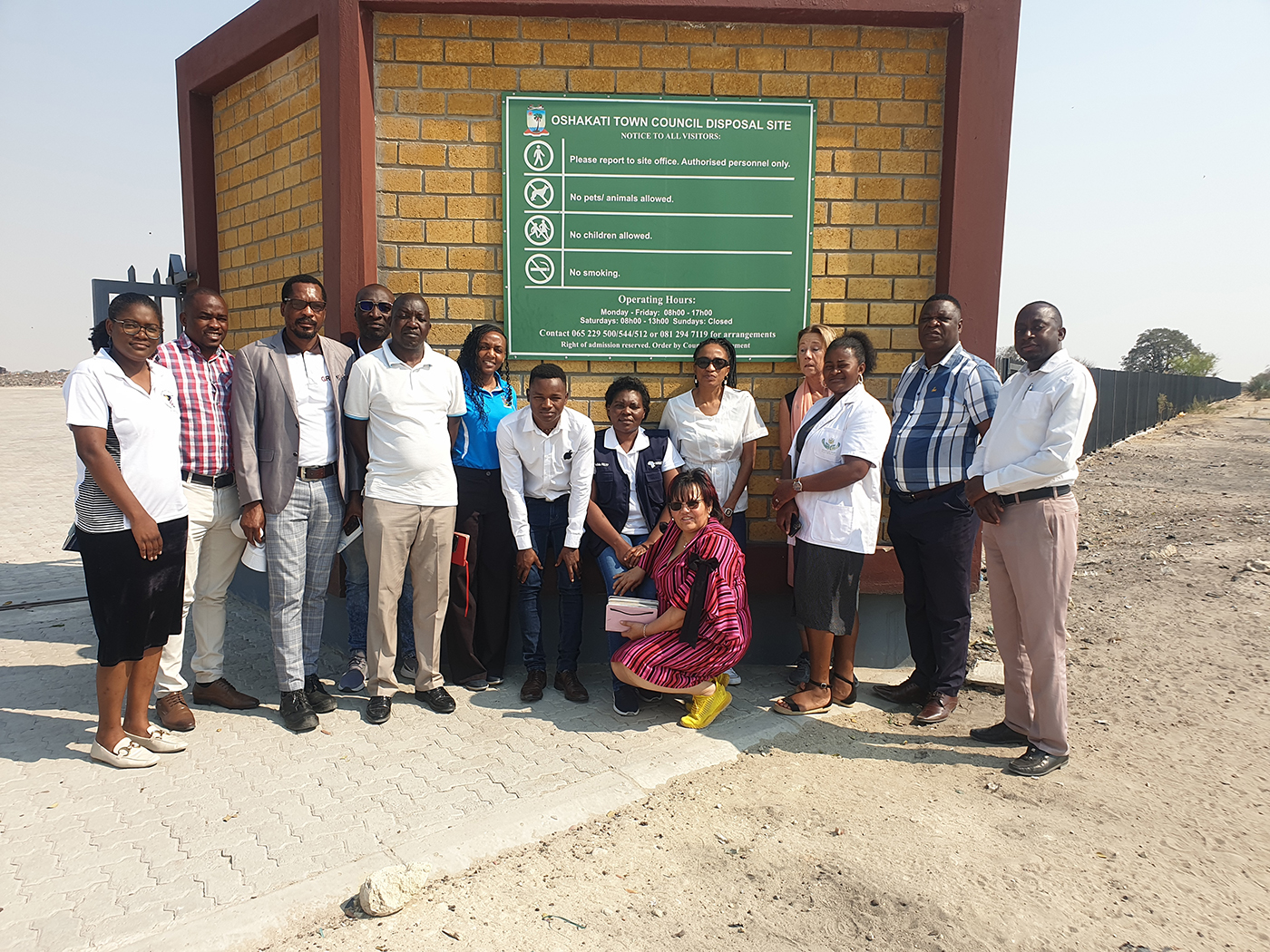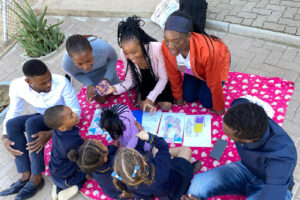The University of Namibia’s (UNAM) Corporate Social Responsibility programme; UNAM Cares in the Office of the Vice-Chancellor under the leadership of the UNAM School of Veterinary Medicine recently embarked upon the UNAM Cares’ One Health Community Education clinic in pandemic prevention. At the launch event, Dr Yvonne Hemberger (Senior Lecturer in Veterinary Public Health and Head of Department in Para-Clinical Studies at the University of Namibia) remarked that feral cats live at a number of places like hospitals, prisons, universities, schools, and hostels and need to be managed humanely, using conventional control techniques.

According to Dr Hemberger most of the methods used to control feral cats are against animal welfare and are cruel. She further remarked that urban feral cats perform a useful function in controlling vermin, such as rats, mice, cockroaches, pigeons, and snakes. She stressed that feral cats do aid in disease control and therefore have a useful function in public health.
Dr Rachel Freeman (Head of UNAM Cares and Senior Lecturer in Social Work) highlighted that the aim of the UNAM Cares’ One Health community education clinic includes, among others, promoting the welfare of feral cats and proper waste control measures at the Intermediary Hospital of Oshakati (IOH). The outreach clinic was officially launched by the Vice-Chancellor of UNAM, Professor Kenneth Kamwi Matengu in close partnership with the Namibian Agronomic Board (NAB), the Society for the Prevention of Cruelty to Animals (SPCA) in the Oshana region, the Directorate of Veterinary Services in Oshakati in the Ministry of Agriculture, Fisheries, Water and Rural Development Oshakati, the Oshakati Town Council, Have-a-Heart Foundation, and the Wapa Nawa Recycling Center. According to Professor Matengu this community engagement is based on promoting the health and wellbeing of humans, animals, and the environment, applying a multidisciplinary approach to advance One Health and pandemic prevention in Namibia. Several One Health stakeholders benefitted from the public health community education on the role and welfare of feral cats in pandemic prevention.
Following the launch of the UNAM Cares One Health Community Education Clinic, the multi-sectoral team conducted two site visits at the Maternity Ward and the Incinerator of the IHO. During the site visits, it was discovered that the prevailing invasion of the feral cats in the maternity ward and at the Incinerator of the IHO only presented the tip of the iceberg, while the key problem was caused by poor waste control systems at the IHO.

In response to findings of the site visits, the multi-sectoral team conducted a training on the importance of having functional waste control strategies in place. The training on waste control presented an opportunity for the development of a joint plan of corrective measures for a waste control system and strategic interventions to improve the work at the human-animal-environment interface in the prevention, detection, and control of zoonotic diseases and pandemic outbreaks in Namibia.
The community engagement further created opportunities for healthy interaction between human and animal welfare in key technical areas under the UNAM Cares One Health umbrella. These key technical areas for collaboration include the development of Standard Operation Procedures on waste management at IHO; the development of departmental waste management plans; having supervision systems in place to ensure proper food handling and storage in the wards; conducting regular maintenance inspections on the functionality of the Incinerator by the IHO management and administration; for the IHO Infection Prevention Control team and the Environmental Health Practitioners to ensure and maintain rabies-free feral cat colonies at IHO.

The launch further resulted in a multi-sectoral initiative to conduct trap, neuter, ear tip & release campaigns and setting up designated feeding stations for feral cats outside the hospital wards in close collaboration with the Directorate of Veterinary Service and Have-a-Heart Foundation. Regular vaccination and de-worming will also be done in order to control and maintain the population of feral cat colony at IHO. Immense gratitude goes to the Ministry of Health and Social Services, the Namibian Agronomic Board, SPCA-Oshana, Oshakati Town Council, Have-a-Heart Foundation and DVS, UNAM School of Veterinary Medicines, UNAM Cares, UNAM Department of Public Health Oshakati Campus, Wapa Nawa, The Namibian Newspaper, The Namibian Sun Newspaper and the Namibian Broadcasting Television Services Oshakati for the generous support and contributions in the successful launch of the UNAM Cares One Health Community Education outreach clinics.






